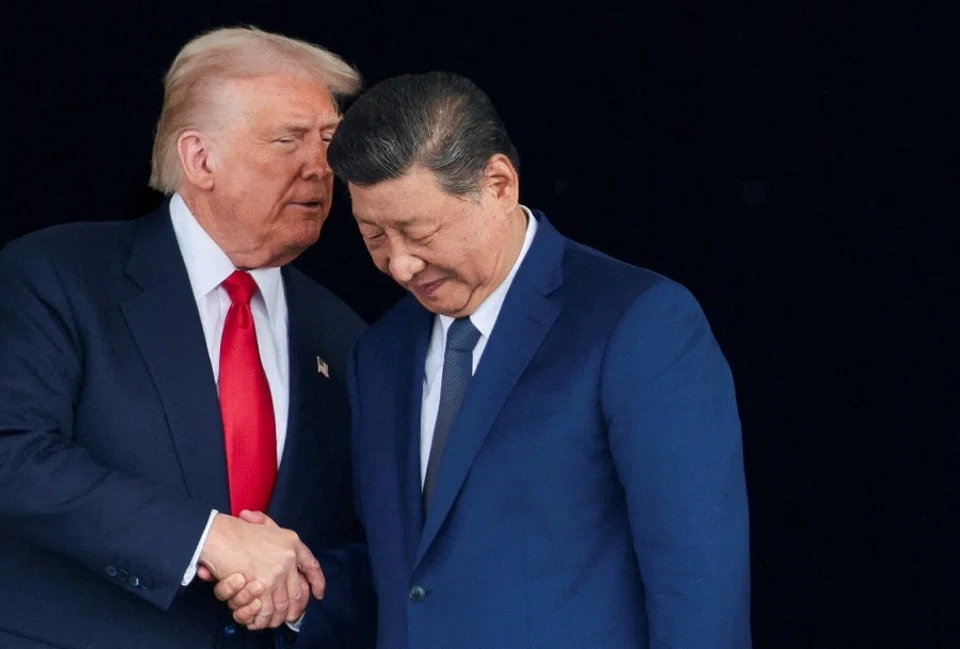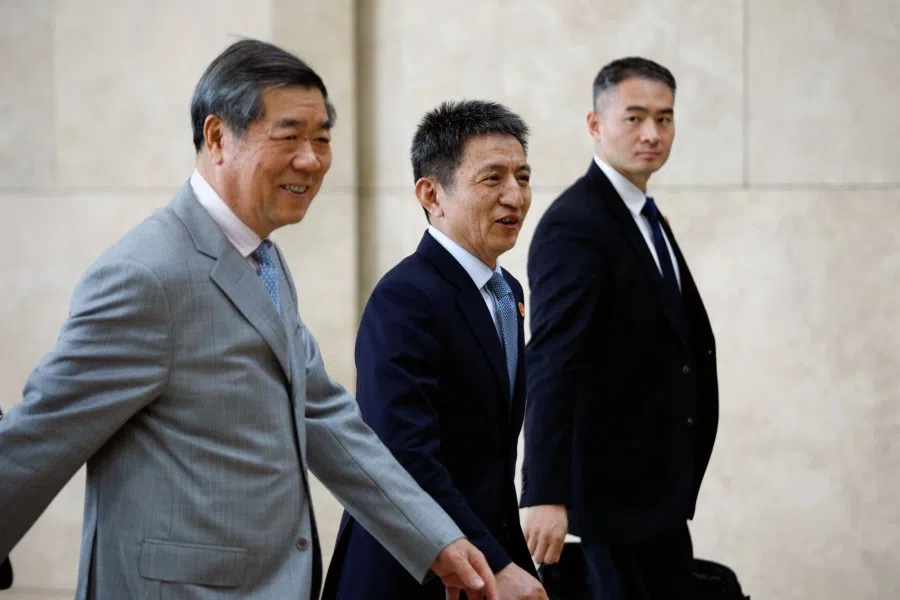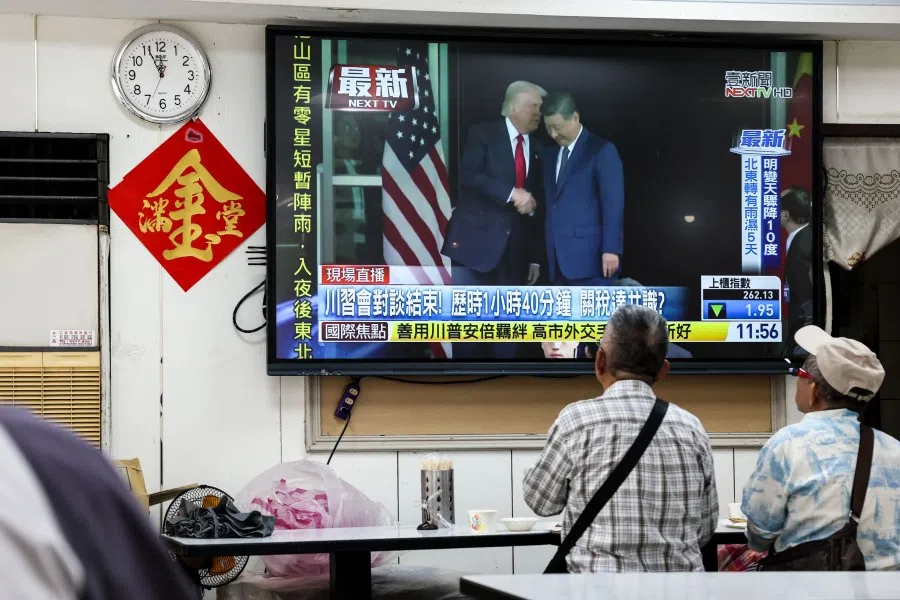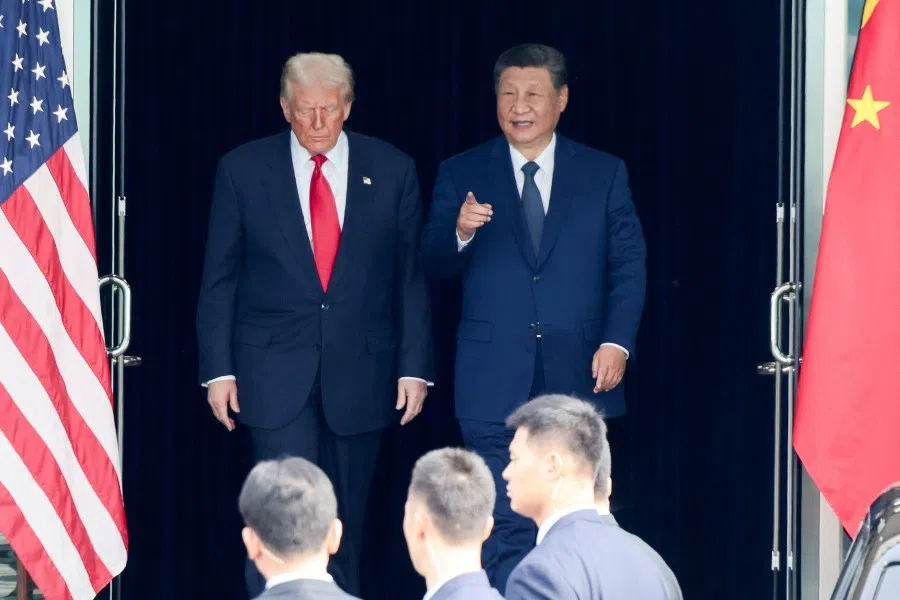Busan diplomacy: When Xi and Trump met as equals
Behind the smiles in Busan, both Washington and Beijing came seeking results. Taiwan stayed off the table but loomed in the background, as a rising China now stands as a peer the US can no longer afford to ignore. US academic Zhiqun Zhu lays out takeaways from the session.

The highly anticipated Trump-Xi summit in Busan, South Korea, ended on 30 October without much drama. Both sides seemed satisfied, with Trump calling the meeting “amazing” and rating it 12 out of 10.
The summit went smoothly, but it is not time to celebrate. That China confirmed the meeting just the day before it took place shows that the Chinese government wanted to dampen public expectations of any breakthroughs from the meeting.
Since Trump returned to the White House in January 2025, the US-China relationship has been overshadowed by growing tensions from the tariff war. Trump and Xi communicated a few times after Trump’s reelection, but this was their first meeting since 2019.
Here are five takeaways from the summit.
Solid groundwork is key to a successful summit
Leaders’ summits are carefully choreographed events, and the latest Trump-Xi summit is no exception. With broad smiles and long handshakes, both leaders seemed pleased. But without meticulous preparatory work, the outcome might have been different.
The two teams were fully aware that neither leader was prepared to go home empty-handed.
Kudos to the negotiation teams from both sides, who engaged in five rounds of preparatory talks in the past few months, including the most recent one between China’s Vice Premier He Lifeng and US Treasury Secretary Scott Bessent and US Trade Representative Jamieson Greer in Kuala Lumpur, Malaysia right before the summit.
When they announced that a successful framework was reached following the Kuala Lumpur meeting, it was clear that both sides were willing to compromise. Li Chenggang, chief trade negotiator of China’s Ministry of Commerce, remarked: the US is tough in stating its position, and China is resolute in defending its interest. In the end, both sides still reached a mutually acceptable framework, paving the way for the leaders’ summit.

The two teams were fully aware that neither leader was prepared to go home empty-handed. Right before the summit, China ordered its first batch of soybeans from the US. It is a boon for American farmers, who are strong supporters of Trump. No wonder Bessent declared in Kuala Lumpur that an escalation in tariffs was “effectively off the table”.
The two sides apparently also reached agreement on fentanyl, rare earths, port fees, and other issues that have been bothering the bilateral relationship.
Leadership matters
Leaders undoubtedly make a difference in international relations, with ample examples in US-China relations. Most notable include Richard Nixon’s historic visit to China in 1972 and Deng Xiaoping’s decision to not allow differences over Taiwan to delay the establishment of US-China diplomatic relations in 1979.
Trump is a master of the business strategy of maintaining good rapport with one’s rivals before securing a sweet deal. He often extols his “great relationship” with Xi, and in Busan he called Xi “a great leader of a great country”.
Xi typically does not directly comment on his relationships with foreign leaders, but the latest summit and their phone calls in the previous months show that he values the working relationship with Trump and healthy US-China ties.
With both leaders willing to handle the problems with respect, it is much easier for their teams to have frank and fruitful negotiations and reach agreement before the summit. The Chinese side showed flexibility and willingness to cooperate on issues that the US cares most about, especially fentanyl, soybeans, and rare earths, while the US side indicated it would lower tariffs and loosen high-tech restrictions.
Though Taiwan was not a major topic for the Trump-Xi summit, probably nobody was watching the meeting with more anxiety than the DPP leadership, who were worried that Trump might sell out Taiwan.

Both leaders also have domestic imperatives to conduct a successful meeting. Trump faced a government shutdown, as well as the upcoming mid-term elections next year. He needed some achievements in foreign affairs, especially in dealing with America’s largest competitor. Likewise, the Chinese Communist Party (CCP) just concluded a plenum in Beijing, outlining economic and social development plans for the next five years. A stable US-China relationship would certainly help Beijing to achieve those goals.
It is encouraging that the two leaders plan to visit each other in 2026, which will further help stabilise the bilateral relationship.
Taiwan not mentioned but remains vulnerable
It came as a surprise, but also a relief, for the Democratic Progressive Party (DPP) and its supporters in Taiwan that Taiwan was not mentioned in this meeting. Every word about Taiwan from an American president is scrutinised by the Taiwanese.
Though Taiwan was not a major topic for the Trump-Xi summit, probably nobody was watching the meeting with more anxiety than the DPP leadership, who were worried that Trump might sell out Taiwan. US Secretary of State Marco Rubio tried to allay Taipei’s concerns before the Busan summit, saying that the US would not walk away from Taiwan for a trade deal with China.
Adding to the DPP’s worries is that a growing number of scholars do not like the US to be dragged into a war with China over Taiwan. In the past few weeks, Foreign Affairs, TIME, RAND, the Quincy Institute, among others, published works by American scholars arguing that the US should not fight with China over Taiwan since Taiwan’s leader is “reckless” and Taiwan is a “non-vital” US interest. Washington should reaffirm its position of not supporting Taiwan independence while not ruling out Taiwan’s peaceful unification with China. The DPP and its supporters do not like such balanced views.
The competition between a rising power and a dominant power is structural. The road ahead for the US-China relationship will be rocky.

Though the DPP can take a breath now, it needs to figure out how to promote peace instead of provoking a conflict in the Taiwan Strait, assuming that the US will come to its aid anyway. As a Financial Times columnist suggested, the argument that Taiwan deserves to be defended because it is a democracy is not one that is likely to appeal to Trump and his supporters. In fact, some in the MAGA movement regard Taiwan as annoyingly woke — for example, the island was the first in Asia to recognise same-sex marriage.
Do not get carried away – conflict is inherent
It would be a mistake to suggest that the bilateral relationship is hunky-dory after the summit.
The competition between a rising power and a dominant power is structural. The road ahead for the US-China relationship will be rocky. China’s continued growth will inevitably cause fear in the US, and the knee-jerk reaction has been to counter China’s development by all means.
Xi’s earlier proposals about forming “a new type of great power relations” and “a community of shared future for humanity” have been met with lukewarm reception or sheer rejection in the US. China’s repeated calls for win-win cooperation have also fallen on deaf ears.
Since returning to the White House, Trump has focused on the tariff and technology wars with China, paying little attention to other dimensions of the complex relationship. Indeed, there are numerous challenges in the bilateral relationship, from educational exchanges to investments, from human rights to the South China Sea.
While the current development in the relationship is encouraging, the truce is fragile. It takes time for the two powers to build trust and form the habit of cooperation despite differences.
Revival of the G2?
Trump used “G2” (“Group of Two”) to refer to his meeting with Xi, suggesting the two countries are co-leaders of global affairs.
The concept of a G2 was first proposed by economist C. Fred Bergsten in 2005 to highlight the importance of the US and China in the global economy. Many other scholars and former government officials such as Zbigniew Brzezinski, Niall Ferguson, Robert Zoellick, and Justin Yifu Lin have also advocated this concept. However, neither Washington nor Beijing have embraced it.
Though the US is still stronger overall, it no longer dominates this bilateral relationship and China can hit back and hurt US interests dearly.

Regardless of whether G2 will become more accepted now, there is no doubt the US and China are peer competitors. Though the US is still stronger overall, it no longer dominates this bilateral relationship and China can hit back and hurt US interests dearly.
Trump imposed high tariffs on almost all US trading partners, which he used as a starting point for trade negotiations. That may be a smart business strategy, but it has not worked on China, which has pushed back and raised reciprocal tariffs on US exports; it has also threatened to retaliate by imposing rare-earth export controls and not buying US soybeans.
As competition intensifies, it is important for the two powers to rationally manage their differences and prevent the emergence of a full-scale, zero-sum, adversarial relationship.
Moving forward, they must find a way to co-exist peacefully. Hopefully political leaders on both sides will make wise choices for the two countries themselves and for the world at large.





